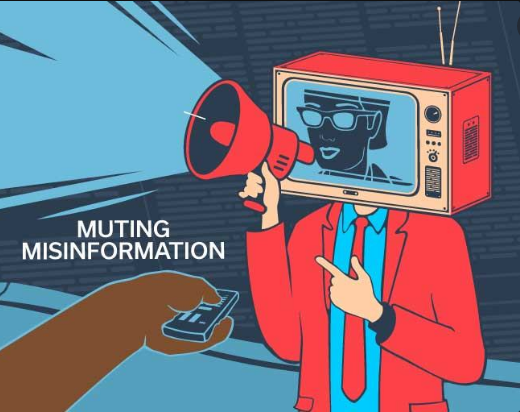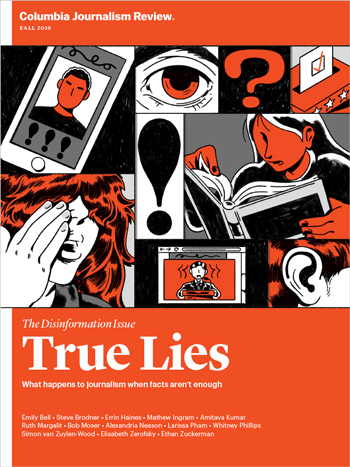Detect Fake News
LSU Manship School's Resource Guide to Fake News
 Thompson Coburn LLP, 2020
Thompson Coburn LLP, 2020
About Us
This website is a resource for students, academics and citizens to defend themselves against fake news and misinformation.
Read the News
Learning the IMVAIN method, distinguishing between factual news vs. opinion and learning about journalistic history are the first steps for critically reading the news.
Ukraine Conflict
As technology advances though deepfakes, a human audio-visual manipulation that is based on artificial intelligence, will become more difficult to detect and that they will be used to interfere with elections.
Experts Focus on Vaccine Misinfo
A panel of experts was questioned by student media journalists. Guests included Prof. Rupali Limaye of Johns Hopkins University on how to talk to parents; Dr. Joseph Kanter, M.D., Louisiana's chief medical officer, Michael Spikes, a Northwestern University media literacy expert, Dr. Hollie Hale-Donze on vaccines and Blake Peterson a news reporter from The Advocate. Learn more and watch the recording of this panel.
Vaccine Misinfo

Is the COVID-19 vaccine safe? Will it change my DNA? Who can we trust for information on COVID-19 and the vaccine? Learn the facts behind common vaccination myths.
Test Your Media Literacy Skills!
Can you go 6 for 6?
Which social media platform currently is trying to maintain a hardline "free speech" approach regarding political content?
a. Twitter
b. Facebook
c. YouTube
d. Myspace
b. Facebook
"Zuckerberg has defended Facebook’s commitment to free expression, even as competitors take steps to address hate and disinformation on their platforms."
Which governmental entities have passed (or are considering) media literacy education? Select all that apply.
a. The United Kingdom
b. Louisiana
c. California
d. Washington state
a, The UK, c. California & d. Washington
In 2019, The United Kingdom’s cabinet secretaries announced that they would provide guidance for teaching media literacy to their students. California passed a law which requires media literacy resources to be available to students. Washington state is considering a media literacy bill, and Massachusetts successfully passed a bill so students can better “access, analyze and evaluate all types of media,” according to Media Literacy Now.
Which platforms said they would take down coronavirus misinformation that is dangerous to public health?
a. Facebook
b. Twitter
c. YouTube
d. All of the Above
d. All of the Above
The public health risks associated with virus misinformation were so high that Google, Twitter and Facebook all announced that they would remove dangerous content about COVID-19, a move that showed their willingness to moderate at least some political content.
What percentage of Americans believe that social media does more to spread lies and falsehoods?
a. 18%
b. 27%
c. 55%
d. 93%
c. 55%
A 2019 NBC News/Wall Street Journal poll found that 55 percent of Americans believed social media does more to spread lies and falsehoods versus only 31 percent who said it does more to spread news and information.
There is evidence that bot accounts account for over half of the Twitter conversation on some political topics?
a. True
b. False
Are social media companies technology companies or media companies?
a. Social Media companies
b. Media Companies
c. It’s Confusing!
c. It's Confusing!
Social media companies want to remain immune from legal consequences for user-generated content. They do not want to be treated like a newspaper. Section 230 of The 1996 Communications Decency Act shields third-party platforms (Facebook, Twitter and Instagram) from liability for user-generated content. Platforms, intent to keep the law unchanged, now face pressure from both political parties that want to change Section 230.
Are You Getting Faked Out?
Take the News Literacy Project's quiz on misinformation in the time of COVID-19, and see if you can tell fact from fiction.
Mis- and Disinformation
Fake news, made-up stories and just pure fiction masquerading as news has a long history in American politics.
